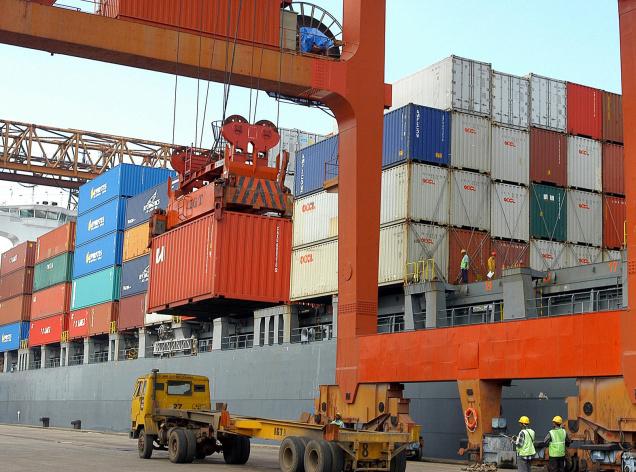Obama, the TPP, and Help from – Republicans?

Please note that we are not authorised to provide any investment advice. The content on this page is for information purposes only.
Are the stars aligning for both passage of a trade promotion authority bill by Congress and approval of the Trans-Pacific Partnership agreement?
Are the stars aligning for both passage of a trade promotion authority bill by Congress and approval of the Trans-Pacific Partnership agreement?
Admittedly, it is a tough time to rally around President Obama. In public appearances since the midterm ‘thumping’ or ‘shellacking’, President Obama has generally gravitated between sullen defiance and studied indifference, allowing merely that the Democrats had a ‘bad night’. As he embarked on the extended trip to Asia, his hosts in Beijing adopted an openly scornful demeanour, with Chinese tabloid Global Times labelling Obama a ‘lame duck president’ who has done ‘an insipid job’.
Still, the new Republican majorities in the House and Senate should not allow partisan gloating — and the president’s limited skills at retail politicking — to deflect them from continuing support of the administration’s ambitious trade agenda. Specifically, in the near term, they should work with the president to fashion so-called trade promotion authority (TPA), which provides for congressional approval or disapproval of trade pacts without amendment and in a time certain. In addition, they should continue to affirm their support for the (hopefully) nearly concluded Trans-Pacific Partnership agreement (TPP), if the administration can produce a truly ‘21st century agreement’ as promised.
The initial signs are promising. The president, Speaker of the House John Boehner, and incoming Senate Majority Leader Mitch McConnell, all have identified trade agreements and the TPA as issues on which they could achieve results. Senator McConnell urged: ‘Send us trade agreements. We are anxious to look at them’. Are the stars aligning for both passage of a TPA bill by Congress, and later approval of the TPP when the negotiations conclude?
Most trade experts believe that it will not be possible for a TPA bill to clear both houses of Congress during the short lame duck session. This means the negotiations over the substantive details of a TPA bill, conducted over the next two months, can lead to a vote on the bill early in the next session of Congress. This portends a huge challenge for Republicans from an inflammatory issue: President Obama’s vow to take independent executive action on major immigration reform before the end of the year. In immediate post-election jockeying for position, both Boehner and McConnell have adopted hardline stances against such sweeping action: it would, averred both, ‘poison the well’ for future collaboration between the Republican Congress and the president.
However, congressional Republicans should not deflect from their support of the TPP or the TPA. As Republican leaders in the House argued with great success to potentially sceptical Tea Party Republicans in 2011, support for more open trade is an extension of distinctly Republican free market principles. Not to have supported FTAs with South Korea, Colombia, and Panama in 2011 would only have played into the hands of labor/environmental left wing of the Democratic Party — or in today’s terms, the Elizabeth Warren wing. In 2011 — as is likely to be the case in 2015 — Tea Party Republicans bought this argument and supported new trade liberalising FTAs by a greater percentage than establishment House Republicans.
Though the Republicans have achieved a large majority (244–186) in the House and a working majority (53 or 54) in the Senate, it will still be wise — and ease the job for the president — to reach out to moderate Democrats as a TPA bill is crafted over the next several months. For both substantive and political reasons, the best place to start TPA negotiations is with the bipartisan TPA bill introduced in January 2014. At that time, it had the support of Democratic Finance Committee Chairman Max Baucus, as well as Hatch and Chairman of the House Ways and Means Committee Dave Camp. The Obama administration praised the bill, without signalling agreement with every detail.
Senator Ron Wyden, who replaced Baucus as Senate Finance Committee chairman, withheld approval of the bipartisan bill, but dawdled at producing a substitute. However, in recent weeks Wyden began discussing language for a new TPA bill with Hatch and his staff. The Republicans have made it clear that, while there is some flexibility, they will adhere closely to the original bill. Still — and Hatch, a notoriously wily bipartisan negotiator already knows this — it would be wise to attempt to compromise where possible with Wyden. Over in the House, though the Democratic leadership has close ties to the anti-trade labour movement, there is still the possibility of corralling a dwindling band of trade-friendly New Democrats if the president weighs in personally.
Even a positive outcome on the TPA does not guarantee success in the TPP negotiations. There remain huge obstacles, beginning with the obduracy — bordering on duplicity — of Japanese Prime Minister Abe and his negotiators, and including the novel 21st-century issues such as state-owned enterprises, intellectual property, investor arbitration, services deregulation, and health and safety rules. Nevertheless, it is also true that solid congressional majorities in support of the TPA, and by extension of the president’s negotiating team, will facilitate the final bottom-line decisions needed to conclude the TPP expeditiously in 2015.
Republicans: step up and help Obama salvage the TPP is republished with permission from East Asia Forum




